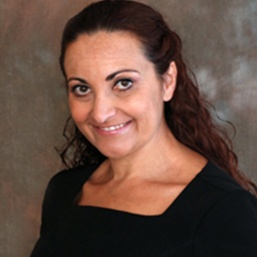
For decades, sex education in Malta was focused on abstinence and not getting a sexually transmitted infection. In the 80’s and 90’s, for example, the approach to sex education was not a sex-positive one, and sexual desire and sexual needs, especially outside of marriage were generally seen as immoral and wrong. Choosing to have sex in a long-term, heterosexual monogamous relationship was deemed to be the most appropriate course of action. The underlying message was that we are better people, better women, when we choose to reject and live ‘above the needs of the flesh’.
Unfortunately, this seems to have left a whole generation with feelings of sexual guilt, shame and regret about their sexual desires and behaviours. I believe that this quote taken from the work of Dr. Clark in 2017 describes the feeling of sexual shame very well:
‘Sexual shame is a visceral feeling of humiliation and disgust toward one’s own body and identity as a sexual being, and a belief of being abnormal, inferior and unworthy. This feeling can be internalized but also manifests in interpersonal relationships having a negative impact on trust, communication, and physical and emotional intimacy. Sexual shame develops across the lifespan in interactions with interpersonal relationships, one’s culture and society, and subsequent critical self-appraisal’.
Dr. Clark, 2017
Shame is learned through following group norms and socialisation. In contrast with the feelings of guilt, this emotion can be described as feeling bad because of “who I am” rather than because of “something I did”. Sexual shame stems from what we consider is “right” or “wrong”, “good” or “bad”. Media, online platforms, education, church, family, and friends can all influence decisions on sexuality and feelings of sexual shame.
Sexual shame can be categorised in four different areas:
- Sexual pleasure: This form of sexual shame originates from the religious narrative that we need to suppress our bodily urges and be “pure” of body and soul. It does not embrace sexual pleasure as being part of being fully human and fully alive.
- Our body as part of our sexual self: At times we can struggle with issues of body image and lack of self-acceptance at the way our body looks. We make-up statements like: “my breasts are too big or too small”, “my penis is too small or too bent when erect”, “I am too fat or too thin to be attractive” “I have too much flab or too much bone”, “bodily secretions produced during sex are disgusting” and “I definitely do not consider myself as sexy”. We might also be ashamed of how genital areas look. In fact, in recent years, we have seen a surge in vaginal rejuvenation surgery to improve shape, size and function of the vaginal area. Also, the amount of spam emails men tend to receive around “miracle cures to lengthen your penis” can be an indication that this is an area of concern for a number of males.
- Sexual positions and sexual practices: Being uncomfortable with exploring new sexual positions and sexual practices can also stem from feelings of sexual shame. Thinking that penile – vaginal penetration sex is the primary goal, preferably carried out in the missionary position was for many years seen as the “good” way of having sex because it is heteronormative and can result in procreation. In our Western society this over emphasis on sexual intercourse has put too much focus on sexual performance forgetting that sex is all about pleasure, connection, and play.
- Sexual desires and sexual fantasies: Sexual fantasies are just thoughts and cognitive processes that help us become sexually aroused. These thoughts do not reflect who we are as human beings and say nothing about our integrity and principles. For example, we might be feminist and strongly belief in equality between sexes but then get turned on by the idea of being dominated and having rough sex.
These examples of sexual shame are learned, we have picked them up along the way. The good news is that they can be unlearnt. Through awareness, acceptance, information, and education. By realising and accepting that sexuality is an integral part of who we are, an integral part of being human. By knowing that there is no “normal” in sex and that we as individuals and couples create our own normal through conversation and consent.

Anna Catania (M.Cons. PG(Dip) Psychosexual and relationship therapy is a warranted counsellor specialised in the area if sex and relationships. She provides counselling to individuals and couples who are having difficulties with sexuality, relationships and intimacy.
Click here to check out Anna’s full bio as well as a list of all her Wham published articles





